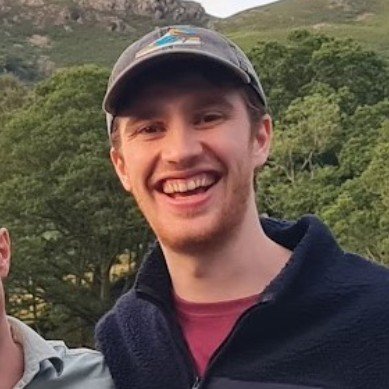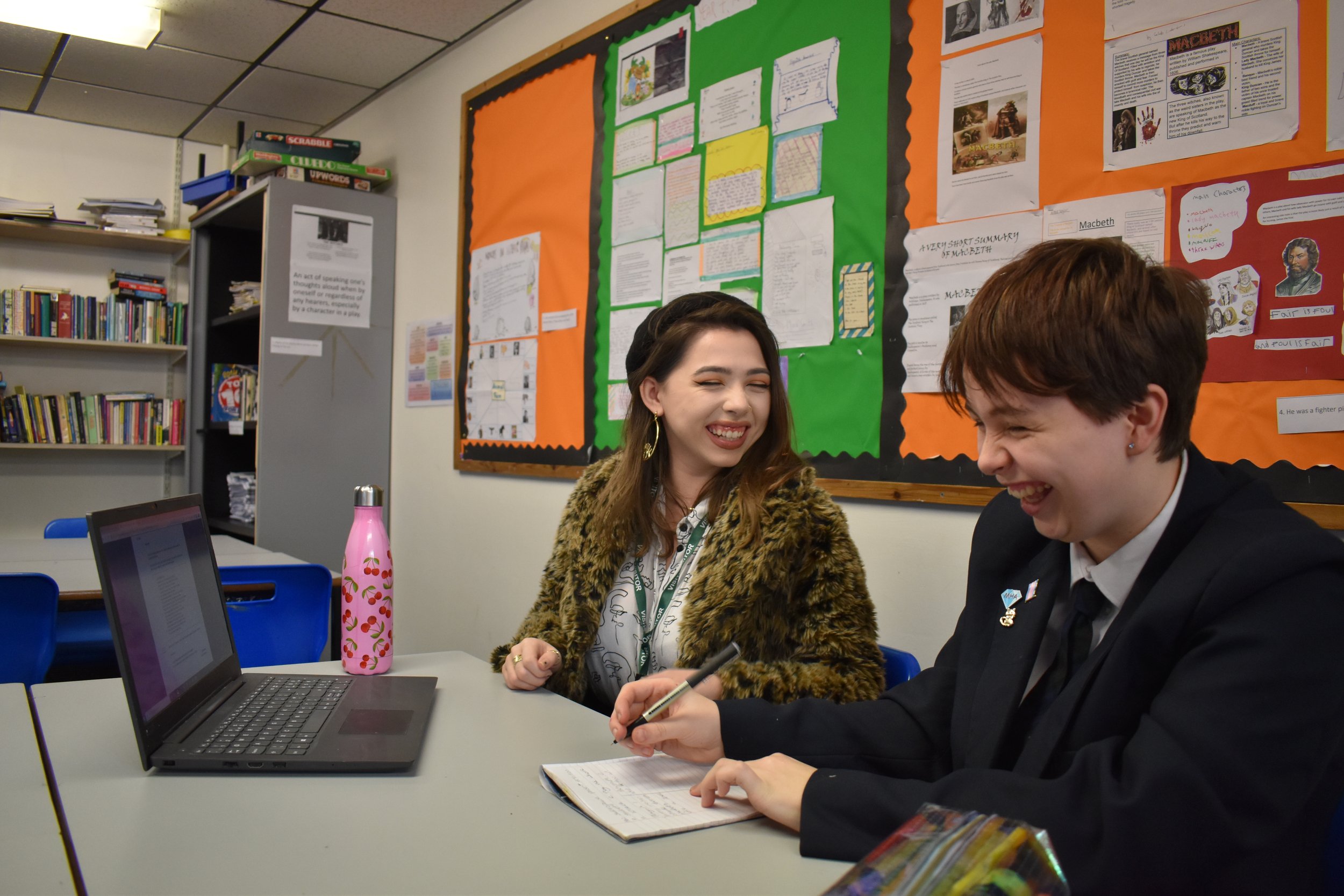An Interview with Jo Owen - author, coach, social entrepreneur and the founder of eight NGOs.
Our senior London Programme Officer, Khaila, recently met up with our new Chair of Trustees Jo Owen, where she had the opportunity to interview him about his passion for tackling educational inequalities and his advice to young people looking to build a career today.
Based on the work you've been doing throughout your career, it’s clear that you are passionate about educational inequalities. Why is that the case, and how does Coachbright fit into that vision?
I got keen on education partly out of my own experience. When I was 13, we were all ranked at school by year group. I came 1,247th out of 1,250 kids at the start of the school year. I wasn't able to use a dictionary because I didn't know the alphabet, and my handwriting was so bad that my work was returned unmarked. Five years later, I had a place at Cambridge University.
So I know what a bad education looks like, and I know what a good education looks like, and I'm acutely aware that there is a huge injustice.
Some people get a good roll of the dice, it's like snakes and ladders, they can climb a ladder and everything's nice and easy, they have a wonderful life, and do whatever it is they want to do. Other people, more talented, more committed, with a better work ethic, get a lousy roll of the dice, and there's just no social justice in that.
Secondly, economically, it is a complete waste of human talent, which we just can't afford as a country. We have to ensure everyone has a chance to fulfil their potential.
For a long time, I couldn't do anything about it because I had to go earn a living, , which I did in various bizarre ways. Then, slightly accidentally if I'm honest, I landed up starting Teach First, which succeeded beyond our expectations, and once that started, inevitably, that drew me into other things like Future Leaders and the Ambition Institute.
It's about trying to give everyone a fair shake of the dice. Systemic change is needed.
I've been at it for 20 years, but if I'm honest the dial hasn't moved. Not because Teach First, Ambition Institute, and all the other initiatives have failed, they've actually succeeded, which makes it worse because what that says is that the baseline isn't a stable baseline of performance, the baseline is declining the whole time.
If it wasn't for all those initiatives, things would be getting far worse, and we'd be in a terrible state. You have to keep at it, that's one thing I’ve learned, and we probably need to be even more ambitious. With any initiative, what I look for is, number one, it's got to have the ability to impact social and educational disadvantage; number two, does it have the potential to go to scale and have an impact at scale? What impressed me about CoachBright is it has both of those.
I was so happy to see that you're committed to serious impact evaluation. Many charities in this space aren't. The second bit is what I learned from Future Leaders and Teach First; the most powerful intervention that you can have, in terms of raising performance, is some form of peer group coaching.
We know that there are significant challenges. No money, no mission, it's that simple. The challenge then is to find a sustainable financial model. Perhaps a new government would invest in this properly, but we can't rely on that. So there's work still to be done on figuring that out, and we've got to have a sense of patience, urgency, and creativity, which is an odd mix.
The urgency is for obvious reasons but we need patience too because we're not going to get there immediately, and creativity because our direction isn't obvious. When sailing against the wind, you have to start zigzagging and get creative. This makes it, in many ways, the most exciting and most rewarding time to be working with CoachBright. The times people remember and learn the most and grow the most are exactly the kind of times that we're facing now. Just as Dickens said, It was the best of times, it was the worst of times.
Let's focus on making it the best of times.
For many people, trustees are quite mysterious. What does your role as our Chair of Trustees involve?
Yes, it can be a bit of a mystery what on earth these odd people do!
There is the formal legal answer, which is that the trustees are the people who are meant to run the organisation. We have ultimate responsibility for the success or failure of the organisation.
In practice, the board delegates day to day responsibility for CoachBright to Joe and the team. The board also tries to ensure that CoachBright is going in the right direction. It’s responsible for the overall strategy and direction, ensuring compliance with all the laws and regulations, and that it is financially viable. It’s all the boring stuff - but if you let it go, within six months you don't have a charity. I've seen that happen repeatedly.
The more interesting stuff is where the board essentially acts as a coach, sponsor, and support for the executive team. A good chair of trustees will coach and support the chief executive quietly in the background. As a board, we have some great talent around the table such as deep HR expertise, deep financial expertise, and deep school expertise, so we have trustees who have real expertise in different areas that the executive can call on.
The early stages of your career were based largely within business and financial services before Teach First. Was there something specific that made you make that U-turn to working within NGOs and charities?
It was a bit of an accident!
I started with a classic business career; I put the blue speckle in Daz, I was the best nappy salesman in Birmingham, then I started a business in Japan, and built that up over a few years.
Around the time of the dot-com boom, I thought I might as well start a bank. After much mucking around, what emerged was an idea for an internet-based bank focused on small corporates with ten to one hundred million pounds turnover, so a small to middle market bank. I convinced Halifax to take this on, which they did, because to build a bank you need about a billion pounds of capital and I was about a billion pounds short. In the end, Halifax bought me out and built the bank themselves.
After that, I was kicking the heels in San Francisco, listening to music, you know, the Doors and Dire Straits. They interrupted the music to broadcast an interview, and it was an interesting interview about how they got great graduates to teach in the inner city.
I thought, that's interesting. I got the name of the project, which was Teach for America, and then had a phone call with the CEO Wendy Kopp.
I said, “Wendy, you must bring it to the UK.”
She said, “No, I'm far too busy.”
But she put me in touch with McKinsey, who were looking into education in London, and after that, we started Teach First.
So, the moral of that tale is that opportunities are thrown at you, and all you have to do is keep your ears and eyes open. Starting Teach First was on one level accidental because it sort of came out of the blue.
Considering that the large majority of volunteers we work with are university students, is there one standout piece of advice that you might give somebody at the beginning of their career?
Go for it.
Just dive in with both feet.
And remember that career is both a verb and a noun. In the past, people used to have a career. It was a noun. You start as a fresh-eyed graduate, and forty-five years later, you retire with a carriage clock, and if you are a loyal employee, you’ve probably died of a heart attack to save the employer on their pension payments.
A career is no longer a noun. It is a verb. For me, it's been a verb, where I’ve careered from triumph to disaster and back again with tedious regularity. But you won’t have the highs without the lows.
Don’t worry about the lows. You’ll learn from them, grow stronger, and build your resilience from them. Over time, the highs will get higher and the lows will get lower, but that is called a career.
So, just go for it. Absolutely go for it. And enjoy the ride.
I am also really interested in your career as an author. How did you get into writing?
I am an accidental author as well, because when we started Teach First, we decided to incorporate a leadership programme. 185 people signed up, but there was just one small problem; we didn’t have a leadership programme, and we couldn’t afford to buy one.
So, I said, right, year one is all about teaching, and then in year two we will do the leadership programme, which gave me one year to build the programme: What is leadership?
I interviewed all these great people, asking them to tell me what made a good leader. The first person would say, leadership is A, B, and C. I went to the next person and they said, let me tell you what makes a good leader, it’s D, E, and F. I went through the alphabet of leadership recipes. All these eminent leaders had completely different ideas about what leadership was, but they were successful; everyone had a different success formula.
So, for the last 20-odd years, I ve been trying to figure this out. I have spent time hanging out with tribes across the world, not to help them, but to understand how they are led. I have worked with extreme mountaineers and special forces. I have been all around the world, living and working in Japan, America and across Europe to try to understand from every different angle what leadership is.
What you find is that there isn’t a single source of success. There are many ways to succeed and many ways to fail, but there are quite a few things you ve got to be able to do.
Is there a standout book that has changed your life, or altered your perspective?
There are lots of books that have helped me.
Being on the board of the Wellbeing Institute at Cambridge University was also transformational for two reasons.
They came up with two findings. One is that optimists live longer and do better than pessimists - which was a disaster because I was brought up to believe that the only reason it's not raining is because it's about to rain.
The second finding was an even bigger revelation, which was that you can choose how you feel. So, optimism, pessimism, anger, or being anxious or anything else, is a choice.
At the time, it seemed unbelievable that we could choose to be angry or not angry because imagine you’re at the end of a long day, things have gone terribly, and there is someone you don't particularly like who just knows which button to press to get a reaction. And they press all the buttons, at which point you have every right to be angry and upset.
But there's no rule that says you have to be angry and upset! That is a choice. Once you realise it is a choice, that is unbelievably liberating and empowering. For me, that was transformational.
I look back on life and I have had endless little transformational moments where I've just been lucky to bump into the right person at the right time who's just given me a nudge in the right direction, perhaps without even realising. Without all of those nudges, where would I be? I have been incredibly lucky.
What are you most excited about for the future of CoachBright?
Over the next few years, CoachBright will create a model which has a high impact, addresses the mission, and is scalable, replicable, and sustainable, so that we can make systematic change, and address the challenge of educational disadvantage.
Even if we only have a 5% chance of changing the system, those are incredibly good odds. We are going to create that legacy for the future, and everyone should take immense pride in being able to do that.








































